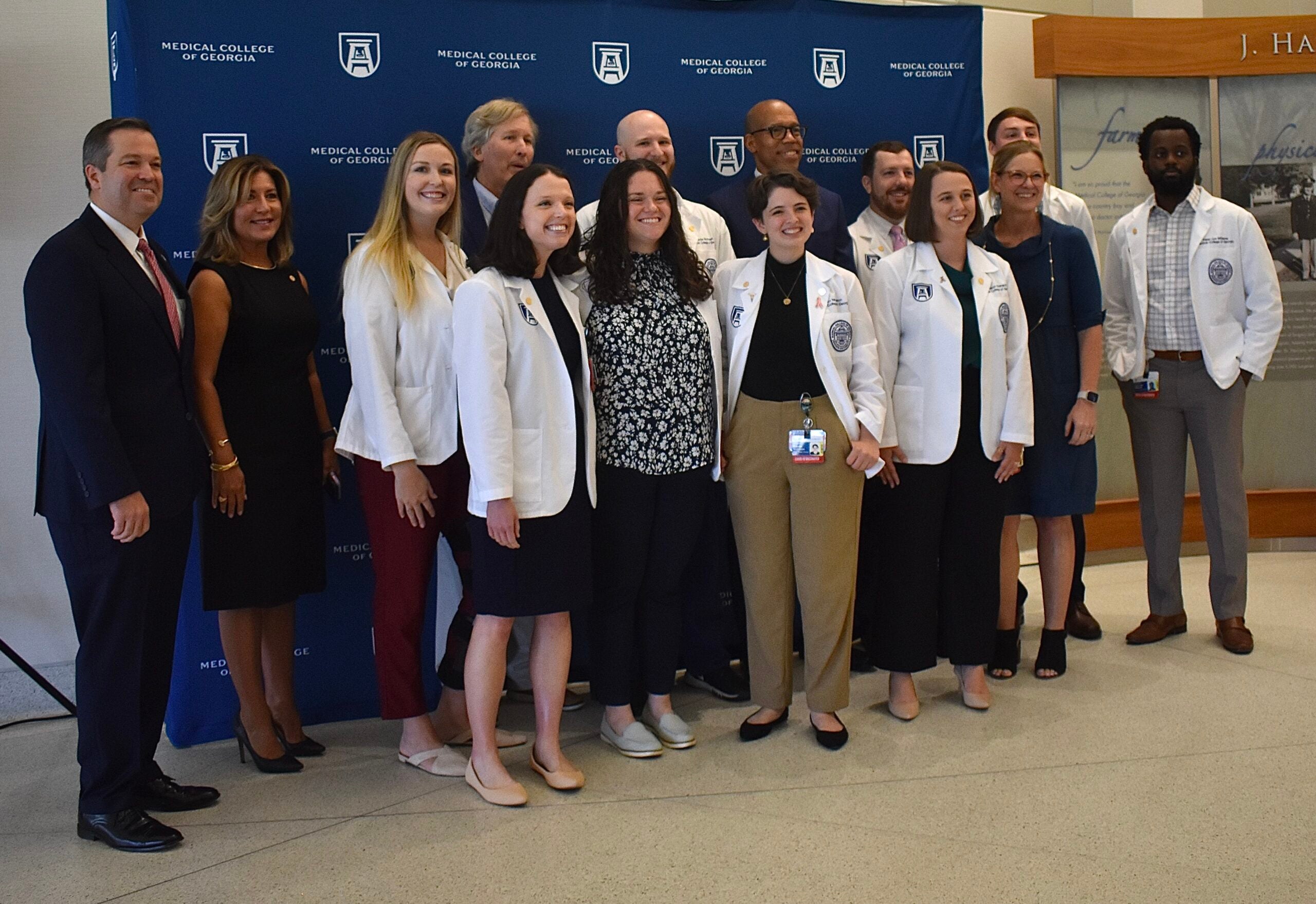The third cohort of the Peach State Scholars, with nine medical students who have committed to Medical College of Georgia’s (MCG) three year Primary Care Pathway, had a pinning ceremony on Wednesday, Aug. 2.
First launched in 2021, the MCG’s accelerated program is an innovative public-private partnership between the state’s only public medical school and the Peach State Health Plan, which is aimed toward helping eliminate Georgia’s rural physician shortage.
Congratulating the future Class of 2026, participating students will finish medical school in three years and then enter directly into a Georgia primary care residency program of their choosing. Residency choices include: psychiatry, emergency medicine, pediatrics, internal medicine, obstetrics and gynecology, family medicine and general surgery.
“These students will graduate from medical school in three years instead of the customary four years … and this is the largest cohort,” said Dr. David Hess, Dean of the Medical College of Georgia. “All the students are great. They are very diverse in the different training they’re having.”
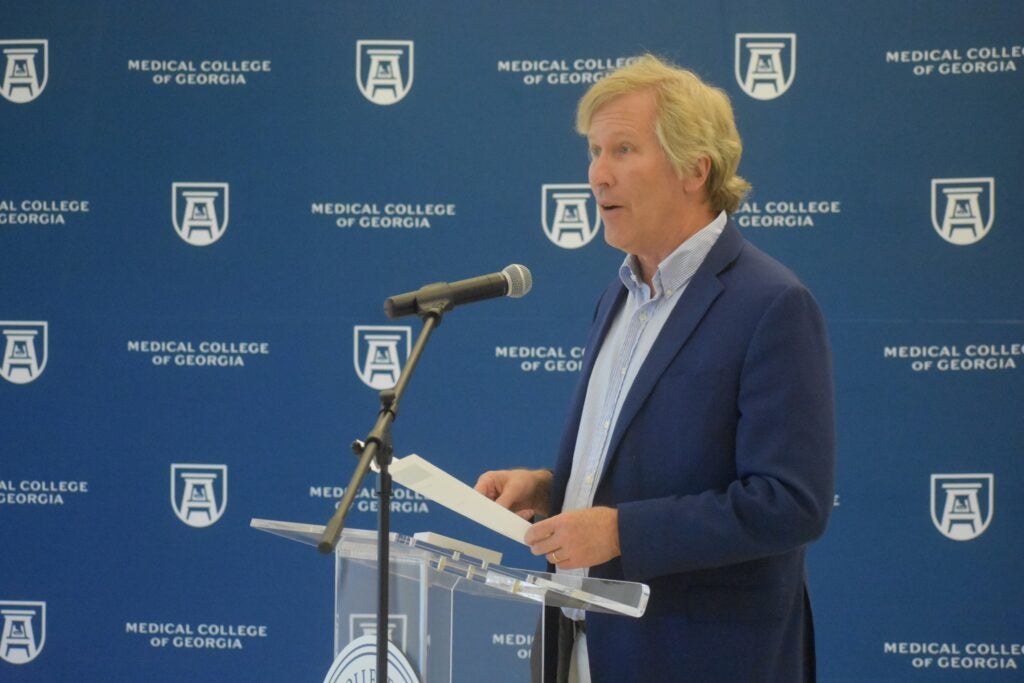
Once they graduate from residency, students will serve in an underserved area of the state. In exchange for their commitment each year to serving a community in need, the students will receive a scholarship covering their medical school tuition.
Although MCG is ranked as one of the 10 largest medical schools in the country, Hess said Georgia is ranked 40th in the country for lack of primary health physicians, and this is linked to many rural areas in the state being undeveloped and thus having a lack of income, jobs and ultimately healthcare practices.
“The more training they’ll get in Georgia, the more likely they are to stay here and work once they’re done with the program,” said Hess. “We got to work with the community to make Augusta a physician-friendly environment. We’ve heard of food deserts, but we also have healthcare deserts here so we have to correct that … this is the beginning of that.”
Hess said he believes the depletion in physicians might be a result of the many rural areas in the state being undeveloped and thus having a lack of income, jobs and ultimately healthcare practices. By accepting several students who grew up in underserved areas within Georgia, such as Dalton, Dunwoody, Canton and Hartsfield, Hess believes scholars will be even more motivated to return home and practice within their familiar community.
“The advantage with this program too is that the residencies see and interact with the students,” said Hess. “So the residency programs get to preview the students and work with them, even before the students get into or apply for their programs.”
Peach State Scholar Jordan Bothwell said he was inspired to pursue a specialty in emergency medicine, because it would allow him to see as many patients as possible without insurance or other paperwork interfering with his ability to help people – which is his favorite part of the job.
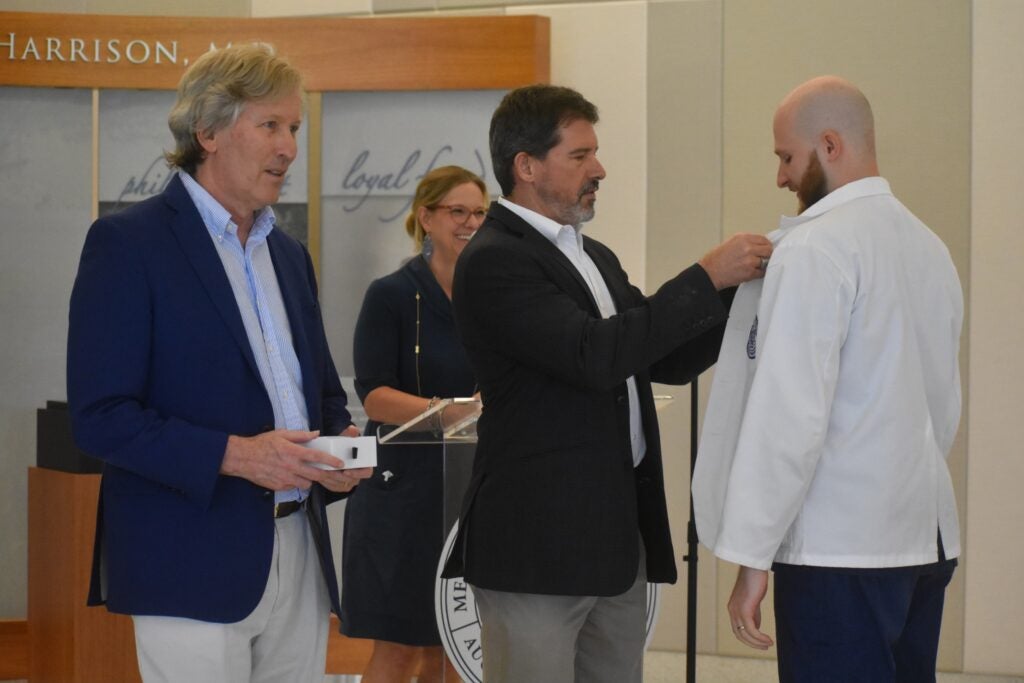
“That was really important to me,” said Bothwell. “Emergency medicine also lets me do a little bit of everything.”
Fellow scholar, Taylor Nicholson, said she was drawn to the program by her long interest in psychiatry since high school after her first introduction to the subject in her AP Psychology class.
“Seeing that there was a program that I could just go ahead and say that was what I want to do, it was an easy choice,” she said.
Both scholars said the accelerated program at MCG will open many doors for them that will be great opportunities.
“There are so many students that are trying to get into different places,” said Bothwell. “But us being able to say, ‘oh, we’re looking into the three plus program, we’re looking into fast-track things’, they immediately open up their doors and say, ‘well come on in, spend some time learning about family medicine, spend some time learning about internal medicine.’ They’re all very, very welcoming too, I think. It’s been a huge blessing.”
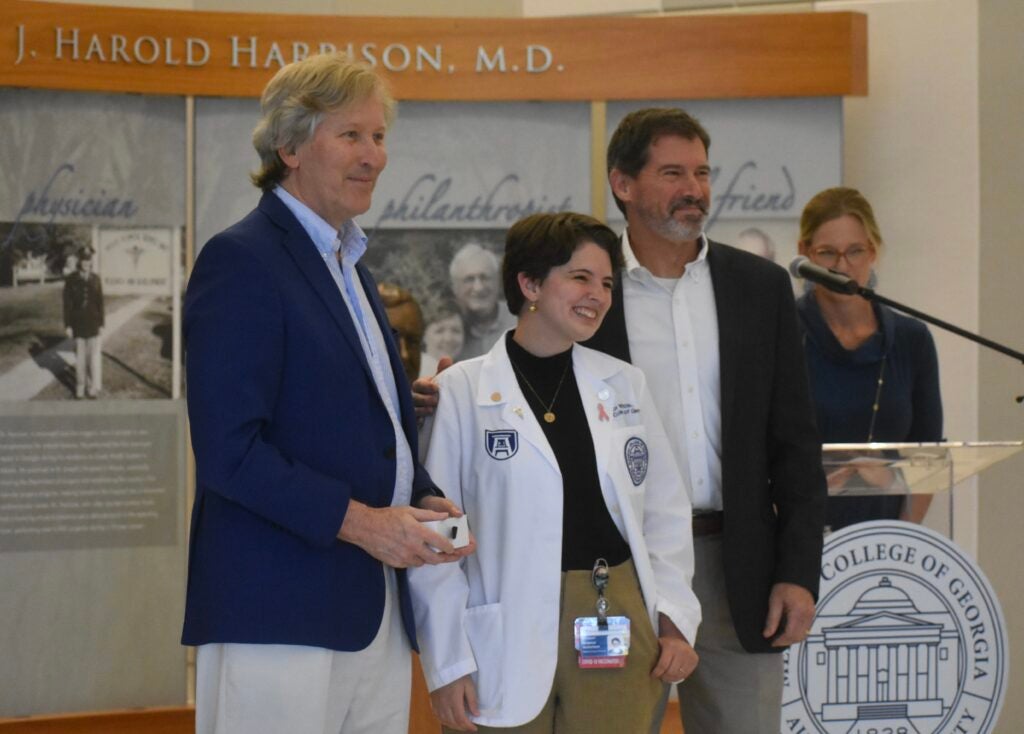
With the first Class of Peach State Scholars entering into their individual residency programs, instructors and staff of MCG said they hoped these students would continue their education by making meaningful connections as well as a difference in local underserved communities.
“Last year, we had seven Peach State Scholars,” said Dr. James Richardson, Chief Medical Director of the Peach State Health Plan. “This year, we have nine. Next year, we plan to have even more. Our goal is to look forward to when they actually start practicing in those rural communities that don’t have the same access to health care.”
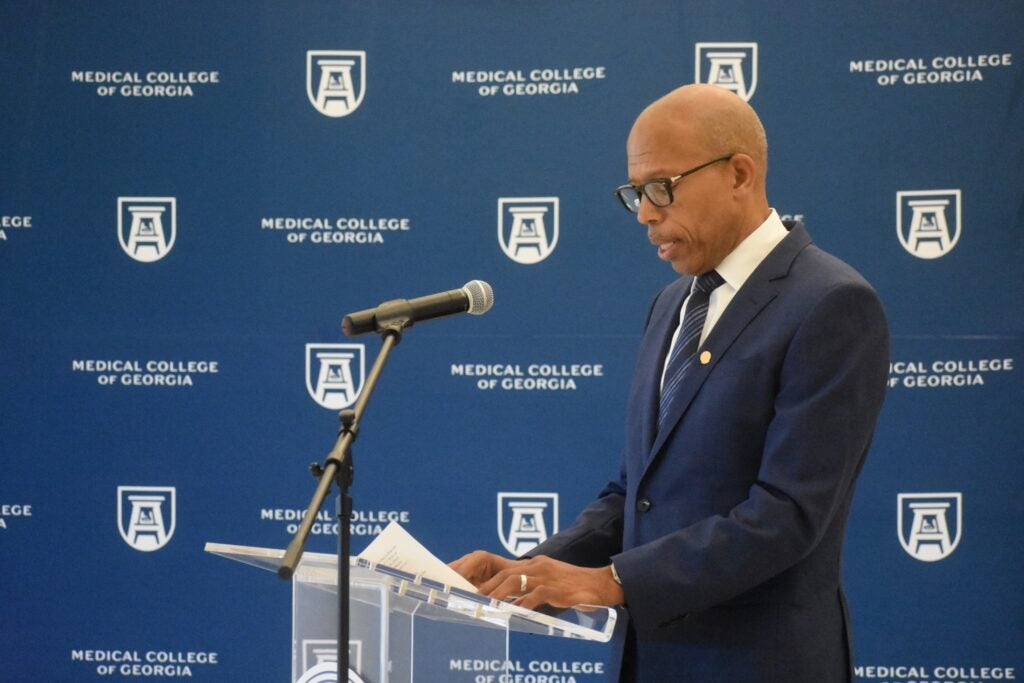
In the future, Hess said he hopes to see the program’s continual growth, and maybe even welcome classes of 30 to 40 students someday.
“We’ve had generous support from the state and donors from different areas,” said Hess. “We need good doctors and we have a great medical school.”

